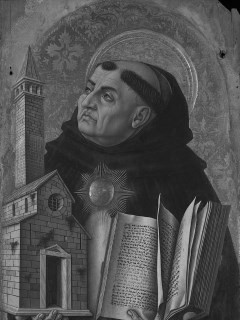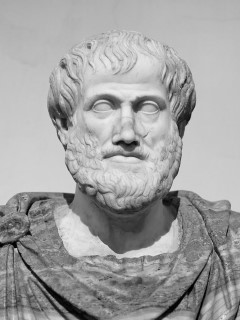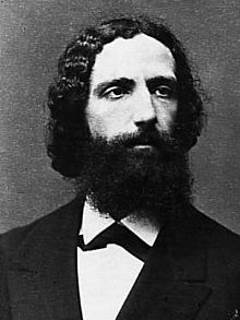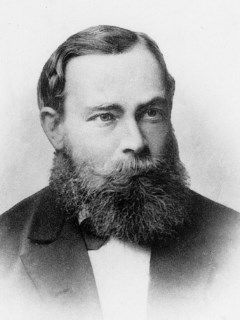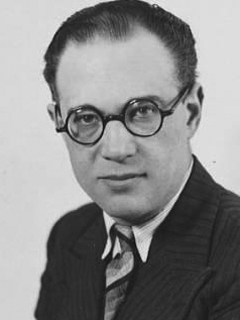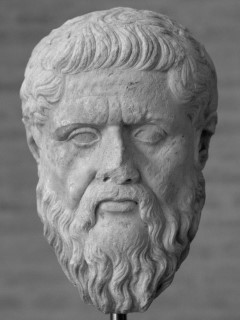John Drummond
with Hopkins, B.C. (eds) (2023). The New Yearbook for Phenomenology and Phenomenological Philosophy 20 (Special Issue).
(2020). Empathy, sympathy, compassion. Metodo, 8 (2), 149-166. https://doi.org/10.19079/metodo.8.2.149.
(2019). Zahavi, Dan, Husserl's legacy [Review of the book Husserl's legacy, by D. Zahavi]. Husserl Studies 35 (3), 265-273.
with Höffe, O. (eds) (2019). Husserl: German perspectives. New York: Fordham University Press.
(2017). Aristotelischer Naturalismus als Phänomenologie. In M. Hähnel (Ed.). Aristotelischer Naturalismus (pp. 261-277). Stuttgart: Metzler.
(2015). Exceptional love?. In M. Ubiali, & M. Wehrle (Eds.). Feeling and value, willing and action (pp. 51-69). Dordrecht: Springer.
(2015). Neo-aristotelian ethics: naturalistic or phenomenological. In J. Bloechl, & N. De Warren (Eds.). Phenomenology in a new key (pp. 135-149). Dordrecht: Springer.
(2012). Intentionality without representationalism. In D. Zahavi (Ed.). The Oxford handbook of contemporary phenomenology (pp. 115-133). Oxford: Oxford University Press.
(2010). Self-responsibility and eudaimonia. In C. Ierna, H. Jacobs, & F. Mattens (Eds.). Philosophy, phenomenology, sciences (pp. 441-460). Dordrecht: Springer.
(2009). La limitation de l'ontologie par la logique. Methodos, 9, n/a. https://doi.org/10.4000/methodos.2131.
(2008). Husserl et les voies de l'accomplissement de la réduction. Alter: Revue de phénoménologie, 16, 263-288.
(2008). Moral phenomenology and moral intentionality. Phenomenology and the Cognitive Sciences, 7 (1), 35-49. https://doi.org/10.1007/s11097-007-9064-0.
(2008). Moral self-identity and identifying with others. The New Yearbook for Phenomenology and Phenomenological Philosophy, 8, 1-15.
(2008). The transcendental and the psychological. Husserl Studies, 24 (3), 193-204. https://doi.org/10.1007/s10743-008-9044-4.
(2007). Phenomenology: neither auto- nor hetero- be. Phenomenology and the Cognitive Sciences, 6 (1-2), 57-74. https://doi.org/10.1007/s11097-006-9037-8.
(2007). Pure logical grammar: Identity amidst linguistic differences. In K. Lau, & J. Drummond (Eds.). Husserl's Logical investigations in the new century (pp. 53-66). Dordrecht: Springer.
with Lau, K.-Y. (eds) (2007). Husserl's Logical investigations in the new century: Western and Chinese perspectives. Dordrecht: Springer.
(2006). Respect as a moral emotion: a phenomenological approach. Husserl Studies, 22 (1), 1-27. https://doi.org/10.1007/s10743-006-9001-z.
(2004). Husserl on the ways to the performance of the reduction. In D. Moran, & L. Embree (Eds.). Phenomenology: Critical concepts in philosophy I (pp. 231-251). London: Routledge.
(2004). On seeing a material thing in space: The role of kinaesthesis in visual perception. In D. Moran, & L. Embree (Eds.). Phenomenology: Critical concepts in philosophy II (pp. 43-55). London: Routledge.
(2003). On Welton on Husserl. The New Yearbook for Phenomenology and Phenomenological Philosophy, 3, 315-332.
(2002). Forms of social unity: Partnership, membership, and citizenship. Husserl Studies, 18 (2), 141-156. https://doi.org/10.1023/A:1015531121939.
(2002). Paradox or contradiction? Human Studies, 25 (1), 89-102. https://doi.org/10.1023/A:1014863013418.
(2002). The logical investigations: paving the way to a transcendental logic. In D. Zahavi, & F. Stjernfelt (Eds.). One hundred years of phenomenology (pp. 31-40). Dordrecht: Kluwer.
with Embree, L. (2002). Phenomenological approaches to moral philosophy: a handbook. Dordrecht: Springer.
(2000). Political community. In K. Thompson, & L. Embree (Eds.). Phenomenology of the political (pp. 29-53). Dordrecht: Springer.
(2000). Time, history, and tradition. In J. Brough, & L. Embree (Eds.). The many faces of time (pp. 127-147). Dordrecht: Springer.
(1998). From intentionality to intensionality and back. Études phénoménologiques, 14 (27-28), 89-126.
(1997). Noema. In L. Embree (Ed.). Encyclopedia of phenomenology (pp. 494-499). Dordrecht-Boston-London: Kluwer.
(1997). Space. In L. Embree (Ed.). Encyclopedia of phenomenology (pp. 670-675). Dordrecht-Boston-London: Kluwer.
(1996). Agency, agents, and (sometimes) patients. In J. Drummond, & J. G. Hart (Eds.). The truthful and the good (pp. 145-157). Dordrecht: Springer.
(1996). The "spiritual' world: the personal, the social, and the communal. In T. Nenon, & L. Embree (Eds.). Issues in Husserl's Ideas II (pp. 237-254). Dordrecht: Springer.
with Hart, J.G. (eds) (1996). The truthful and the good: essays in honor of Robert Sokolowski. Dordrecht: Springer.
(1995). Moral objectivity: Husserl's sentiments of the understanding. Husserl Studies, 12 (2), 165-183. https://doi.org/10.1007/BF01417589.
(1994). Synthesis, identity and the apriori. Recherches husserliennes, 2, 27-51.
(1993). Edmund Husserl, Collected works IV: On the phenomenology of the consciousness of internal time (1893-1917) [Review of the book On the phenomenology of the consciousness of internal time (1893-1917), by E. Husserl]. Review of Metaphysics 46, 848-850.
(1992). An abstract consideration: de-ontologizing the noema. In J. Drummond, & L. Embree (Eds.). The phenomenology of the noema (pp. 89-109). Dordrecht: Kluwer.
(1992). Edmund Husserl's reformulation of philosophy: premodern, modern, postmodern? American Catholic Philosophical Quarterly, 66 (2), 135-154.
(1992). Indirect mathematization in the physical sciences. In L. Hardy, & L. Embree (Eds.). Phenomenology of natural science (pp. 71-92). Dordrecht: Springer.
with Embree, L. (1992). Introduction. In J. Drummond, & L. Embree (Eds.). The phenomenology of the noema (pp. 1-7). Dordrecht: Kluwer.
with Hart, J.G. , Evans, J.C. (1992). Book review [Review of the book , by ]. Husserl Studies 9 (3), 219-238.
with Embree, L. (eds) (1992). The phenomenology of the noema. Dordrecht: Kluwer.
(1991). Phenomenology and the foundationalism debate. Reason papers, 16, 45-71.
(1991). Willard and Husserl on logical form. In T. M. Seebohm, D. Føllesdal, & J. N. Mohanty (Eds.). Phenomenology and the formal sciences (pp. 243-255). Dordrecht: Springer.
(1990). Husserlian intentionality and non-foundational realism. Dordrecht: Kluwer.
(1988-1989). Modernism and postmodernism: Bernstein or Husserl? Review of Metaphysics, 42, 275-300.
(1988). Realism versus anti-realism: a Husserlian contribution. In R. Sokolowski (Ed.). Edmund Husserl and the phenomenological tradition (pp. 87-106). Washington: Catholic University of America Press.
(1985). Frege and Husserl: another look at the issue of influence. Husserl Studies, 2 (3), 245-265. https://doi.org/10.1007/BF00430969.
(1984). Husserl and intentionality: a study of mind, meaning, and language [Review of the book , by ]. Husserl Studies 1 (1), 201-225.
(1983). Objects' optimal appearances and the immediate awareness of space in vision. Man and World, 16 (3), 177-205. https://doi.org/10.1007/BF01249504.
(1979-1980). On seeing a material thing in space: The role of kinaesthesis in visual perception. Philosophy and Phenomenological Research, 40, 19-32.
(1979). The phenomenology of perceptual sense. Southwestern Journal of Philosophy, 10, 139-148.
(1978). On the nature of perceptual appearances, or is Husserl an Aristotelian? The new scholasticism, 52, 1-22.
(1975). Husserl on the ways to the performance of the reduction. Man and World, 8 (1), 47-69.
(1975). Presenting and kinaesthetic sensations in Husserl's phenomenology of perception. Washington, D.C.: Georgetown University.


